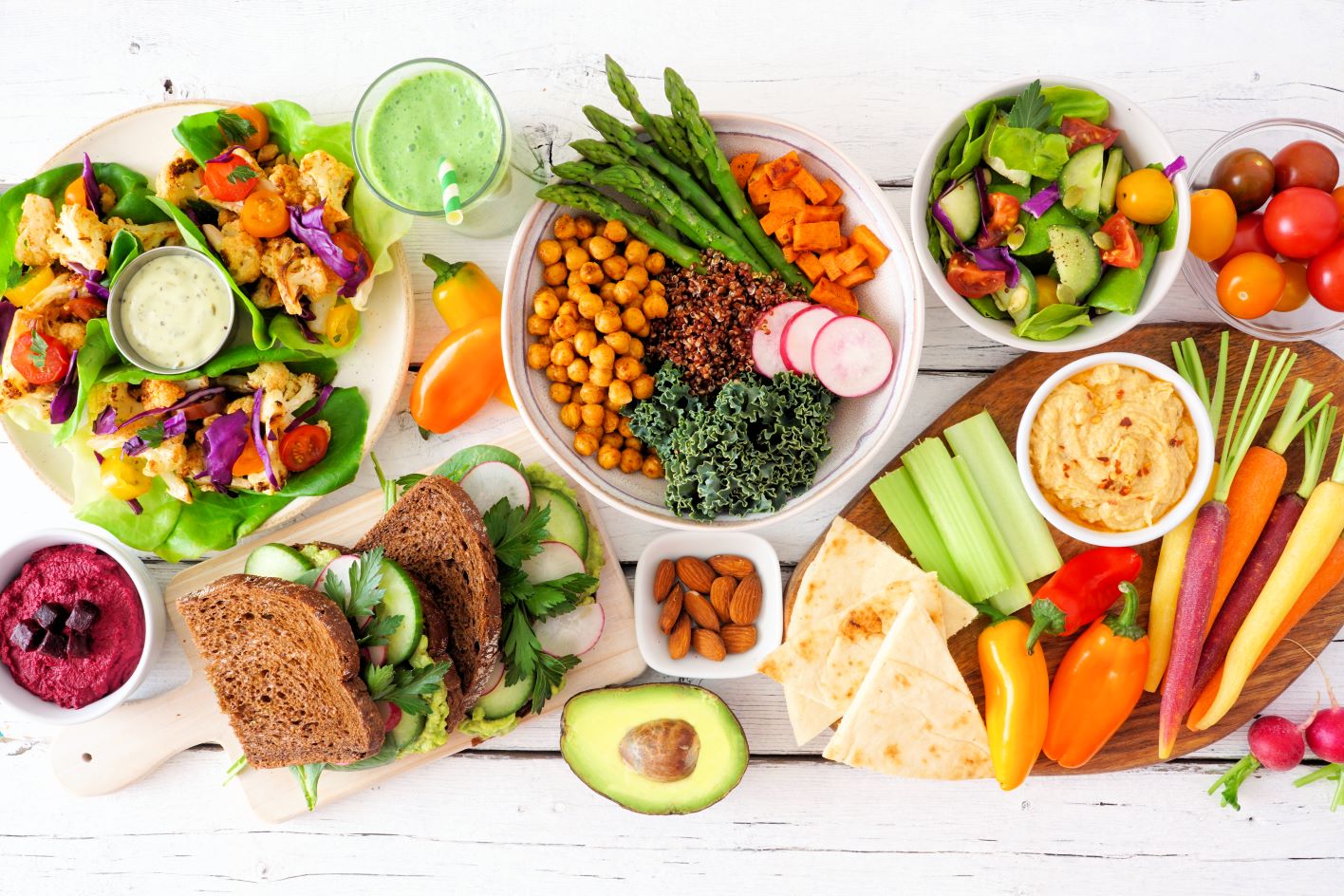Understanding the Link Between Mental Health and Food
Mental Health is a Complicated Topic
Mental health is a complicated topic, and many factors can play a role in it, including physical activity and diet. For example, your brain uses about 20% of your energy from food and needs nutritious foods high in vitamins, minerals, antioxidants, proteins, complex carbs, and healthy fats to work properly.
The Connection Between Food and Mental Health
Food is fuel. It delivers key vitamins, minerals, and fats to your body (and your brain!) that help you make serotonin, lower inflammation, and support overall cognitive function, such as learning, memory, and attention.
6 Potential Effects of a Healthy Diet on Your Brain and Mental Health
1. Protect Your Brain with Antioxidants
Free radicals are unstable, reactive molecules that can cause damage throughout the body. Unfortunately, they’re unavoidable. Eating antioxidant-rich foods like berries, leafy greens, nuts, seeds, and beans can help combat oxidative stress and the problems that come with it.
2. Prevents Against Inflammation and Cognitive Decline
Inflammation is your body’s response to injury, illness, toxins, or things that don’t belong in the body. Eating a lot of unhealthy foods high in saturated fat, trans fat, or added sugar may cause ongoing, low-level inflammation that can lead to dementia and cognitive decline as we age.
3. Supports Your Brain with Omega-3 Fatty Acids
Your brain needs omega-3 fatty acids to make new cells and pathways, store energy, send signals, and control inflammation. Omega-3s are essential fatty acids, meaning they come only from foods. Your body can’t produce these on its own, making them an especially important part of your diet.
4. Regulates Your Mood with Magnesium and Vitamins
A healthy diet for mental health gives your body vitamins and nutrients that nourish your brain, raise energy levels, and regulate mood. For example, magnesium may help balance stress hormones, improve stress and anxiety, and improve low mood symptoms such as weakness and fatigue.
5. Boosts Your Brain Power through Proper Hydration
The link between mental health and food also includes hydration. Your brain mass is 75% water, and too much or too little water may cause problems with thinking, memory, and mood.
6. Supports Your Gut Health with Fiber and Probiotics
Fermented foods like yogurt, kimchi, sauerkraut, kefir, and tempeh are rich in probiotics that help populate your gut with friendly bacteria. One review of the existing research found that gut bacteria may influence how your brain reacts to stress, potentially lowering anxiety and depression symptoms.
Foods That Help Support Mental Health
So, what exactly should you eat to support good mental health?
- Fiber-rich whole grains: Brown rice, oatmeal, whole wheat pasta or bread, quinoa, millet, farro, and buckwheat
- Complex carbs: Whole grains, bananas, apples, berries, melons, potatoes, and peas
- Antioxidant-rich foods: Spinach, kale, swiss chard, citrus fruits, berries, nuts, seeds, meat, fish, shellfish, apples, grapes, and green tea
- Omega-3s: Chia seeds, flax seeds, walnuts, canola oil, salmon, mackerel sardines, and fortified dairy or nut milk
- Magnesium-rich foods: Whole grains, milk, yogurt, nuts, seeds, and leafy greens like spinach and kale
- Foods rich in B vitamins: Tuna, salmon, chickpeas, chicken, dark leafy greens, oranges, and papayas
- Vitamin D foods: Salmon, tuna, sardines, beef liver, fortified orange juice, and fortified milk
- Hydrating foods: Cucumbers, celery, lettuce, bell peppers, melons, and berries
Conclusion
Nutrition and mental health go together. Your diet affects how your brain and gut work, influencing how cells and nerves talk to each other, make brain chemicals, store energy, and respond to stress. While the links between food and your brain may sound complicated, eating food to make you feel good can be simple.
FAQs
Q: How does food affect my mental health?
A: Food provides the energy and nutrients your brain needs to function properly. A healthy diet can support mental health by providing essential vitamins, minerals, and antioxidants.
Q: What foods are good for mental health?
A: Foods rich in fiber, omega-3s, magnesium, and vitamins, as well as antioxidant-rich foods and hydrating foods, can support mental health.
Q: Can a healthy diet cure mental health conditions?
A: A healthy diet is not a cure for mental health conditions, but it can be a valuable tool in managing symptoms and improving overall well-being.
Recommended Products:
-
Sale!

Organic Vegan Sport Protein Powder, Chocolate – Probiotics, BCAAs, 30g Plant Protein for Premium Post Workout Recovery, NSF Certified, Keto, Gluten & Dairy Free, Non GMO, Garden of Life – 19 Servings
Original price was: $54.95.$41.99Current price is: $41.99. Buy Now -
Sale!

EVL BCAA Lean Energy Powder – Pre Workout Green Tea Fat Burner Support with BCAAs Amino Acids and Clean Energizers – BCAA Powder Post Workout Recovery Drink for Lean Muscle Recovery – Fruit Punch
Original price was: $29.99.$20.01Current price is: $20.01. Buy Now -

Align Digestive Health Prebiotic + Probiotic Supplement Gummies in Natural Fruit Flavors, Probiotic for Men and Women, #1 Doctor Recommended Brand, 50 Gummies
$20.98 Buy Now



